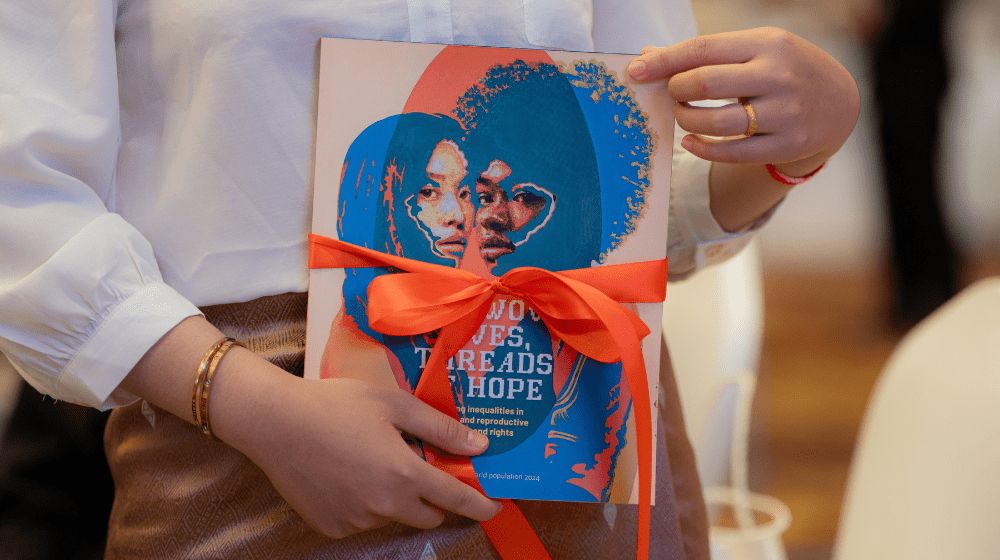09 July 2024, Vientiane Capital, Lao PDR - Representatives from government, embassies, development partners, civil society, media, private sector, and young people all came together to celebrate World Population Day and raise awareness and support for Lao PDR’s commitments from the 7th Asia Pacific Population Conference and the 57th Commission on Population and Development. The event also sought to engage stakeholders in support of accelerating the implementation of the Programme of Action of the International Conference on Population and Development.
Deputy Minister of Planning and Investment (MPI), Mrs. Phonevanh Outhavong, and Dr. Bakhtiyor Kadyrov, the United Nations Population Fund (UNFPA) Representative for Lao PDR, led the celebrations emphasizing the importance of World Population Day in increasing awareness of national progress and commitments, sharing success stories, and learning from best practices to accelerate the ICPD Programme of Action.
Mrs. Phonevanh Outhavong remarked on the important of investment on young people she said “On the occasion of the World Population Day 2024, I represent the Ministry of Planning and Investment as well as the government, calling on the central and local sectors as well as all sectors of society to continue to implement various programs and policies of the Lao PDR, as well as to consider to plan and utilize the various potentials in the country. There is an urgent need to increase and strengthen cooperation with various strategic partners including development partners. In particular, we would maximize harnessing the demographic dividend and potential strength of young people who account for 60% of the total population. We need to ensure that our young people are well equipped with good education, skills, health, employment and empowered to make an important contribution to the development of Laos”
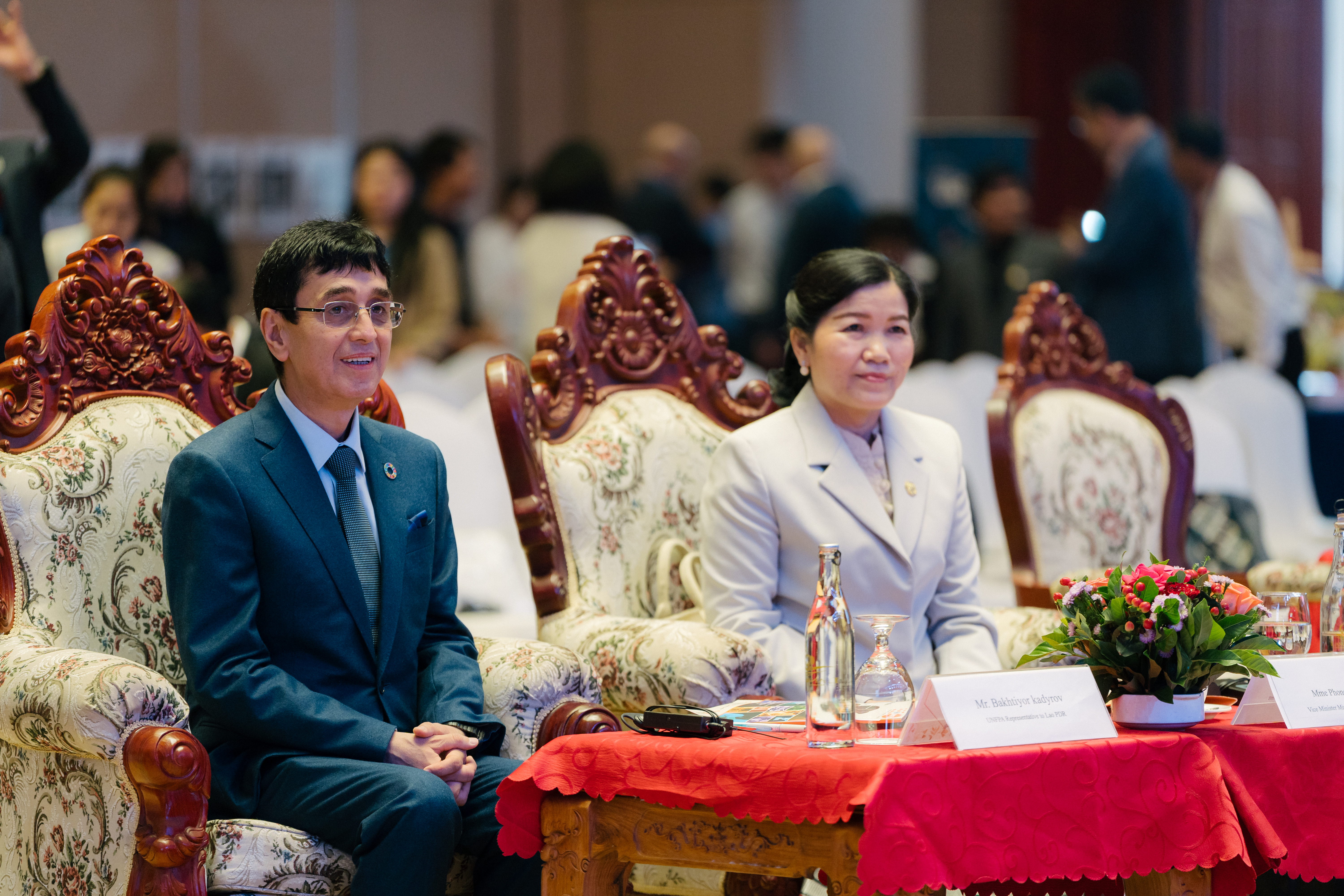
This year’s marking of the World Population Day in the country also gets insights from the State of World Population Report “Weaving the promise: Ending Inequalities in Sexual and Reproductive Health and Rights. This is to demonstrate that family, community and national resilience comes not from any individual strand but emanates from the collective, interwoven whole; To emphasize that the celebration of the World Population Day is about people; the vast tapestry of individuals that make up the globe and somewhat closer to home, the 7.68 million diverse individuals who make up this beautiful country, Lao PDR. In this regard, the event included textile fashion show and performance with key messages.
Dr. Bakhtiyor Kadyrov applauded Lao PDR for its strong commitment to the ICPD PoA.
“
During the celebration, the Government of Lao PDR and UNFPA showcased successful programs from the past year, promoting universal access to sexual and reproductive health, realizing reproductive rights, reducing maternal mortality, and empowering women and young people, ensuring no one is left behind.
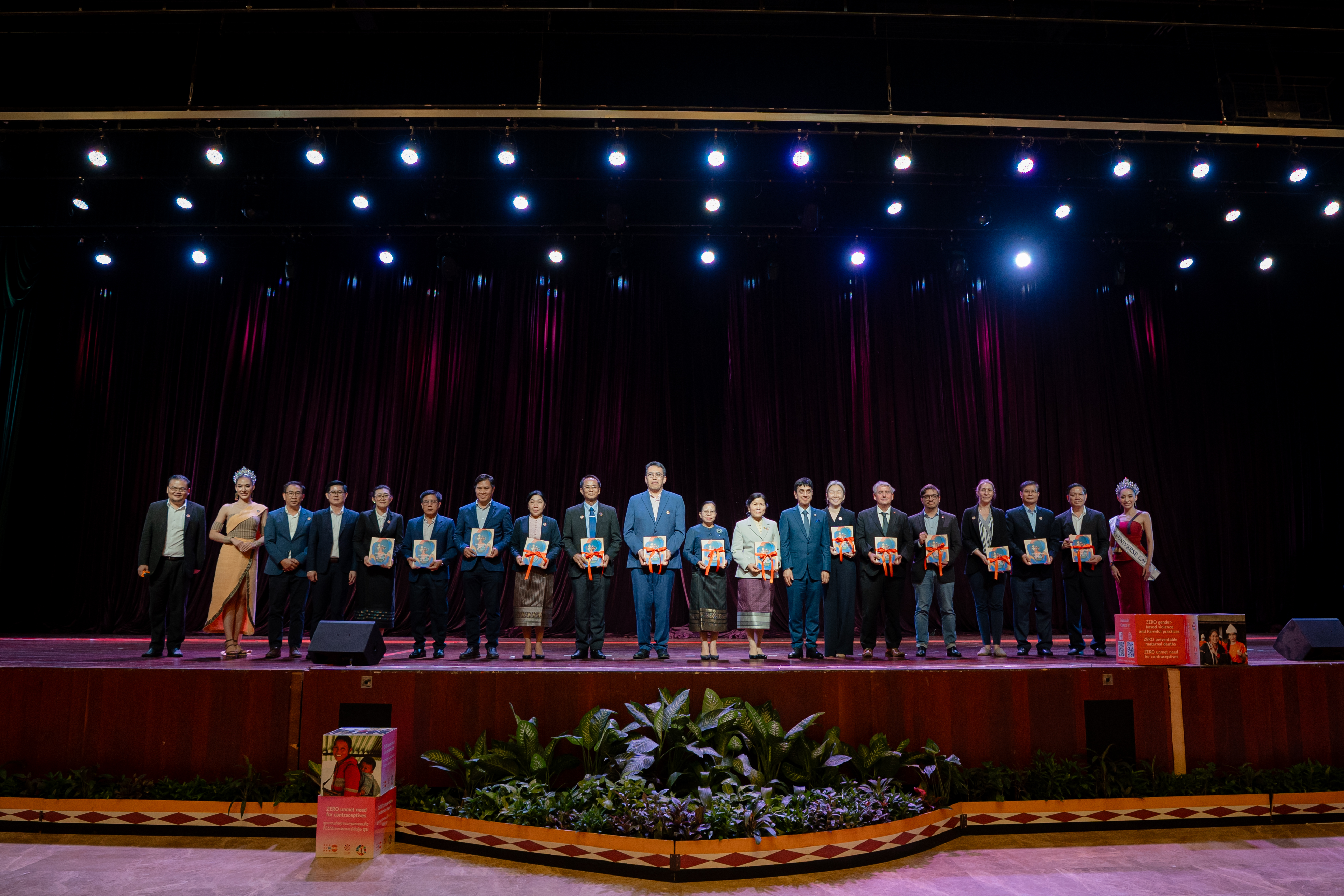
Over the years of strong partnership, the Government of Lao PDR and UNFPA have supported initiatives to enhance data availability and accessibility on population characteristics, including civil registration, vital statistics, the demographic dividend, population censuses, surveys, and research. This effort has facilitated the development of inclusive population policies and the integration of sexual and reproductive health, reproductive rights, and gender into sectoral programs.
Stakeholders highlighted Lao PDR's significant achievements, including reducing the proportion of people living below the national poverty line from 48% in 1990 to 18.3% in 2018-2019. They also noted a decline in maternal mortality from 905 per 100,000 live births in 1990 to 126 per 100,000 live births in 2020, with 79.8% of births attended by skilled personnel.
Although significant strides have been made in the past three decades, disparities persist across ethnic groups, geographic regions, ages, and socio-economic backgrounds. A critical indicator highlighted by the new data from LSIS III refers to SDG 5.6.1 which recognizes the importance of bodily autonomy as a human right. The data shows that only around 18% of women take autonomous decisions regarding contraceptive use, and only 45% can make their own decisions regarding healthcare. This is further exacerbated with disparities among urban and rural communities (especially those without road access) and by age, ethnicity, and region.
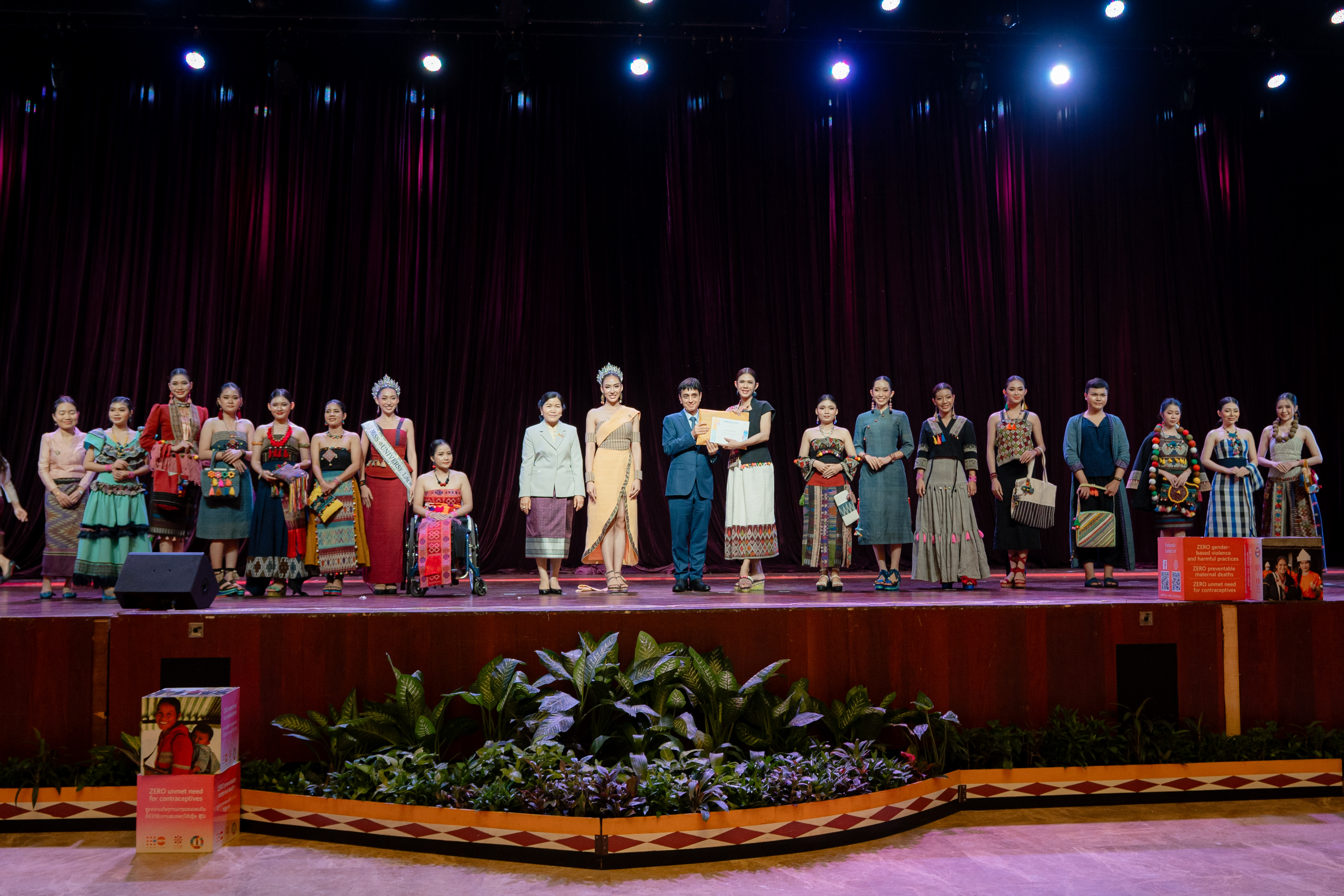
As the demographic landscape shifts towards a larger proportion of working-age women, our attention on young girls and women becomes increasingly critical, especially regarding issues like teen pregnancies and child marriage. Bokeo province, for instance, faces a staggering teenage pregnancy rate of 27%, more than double the global average. Regarding child marriage, over half of Laos' poorest women are married before turning 18—five times more than their wealthiest counterparts. Education emerges as pivotal; girls without education experience childbearing rates over eight times higher than those with higher educational attainment.
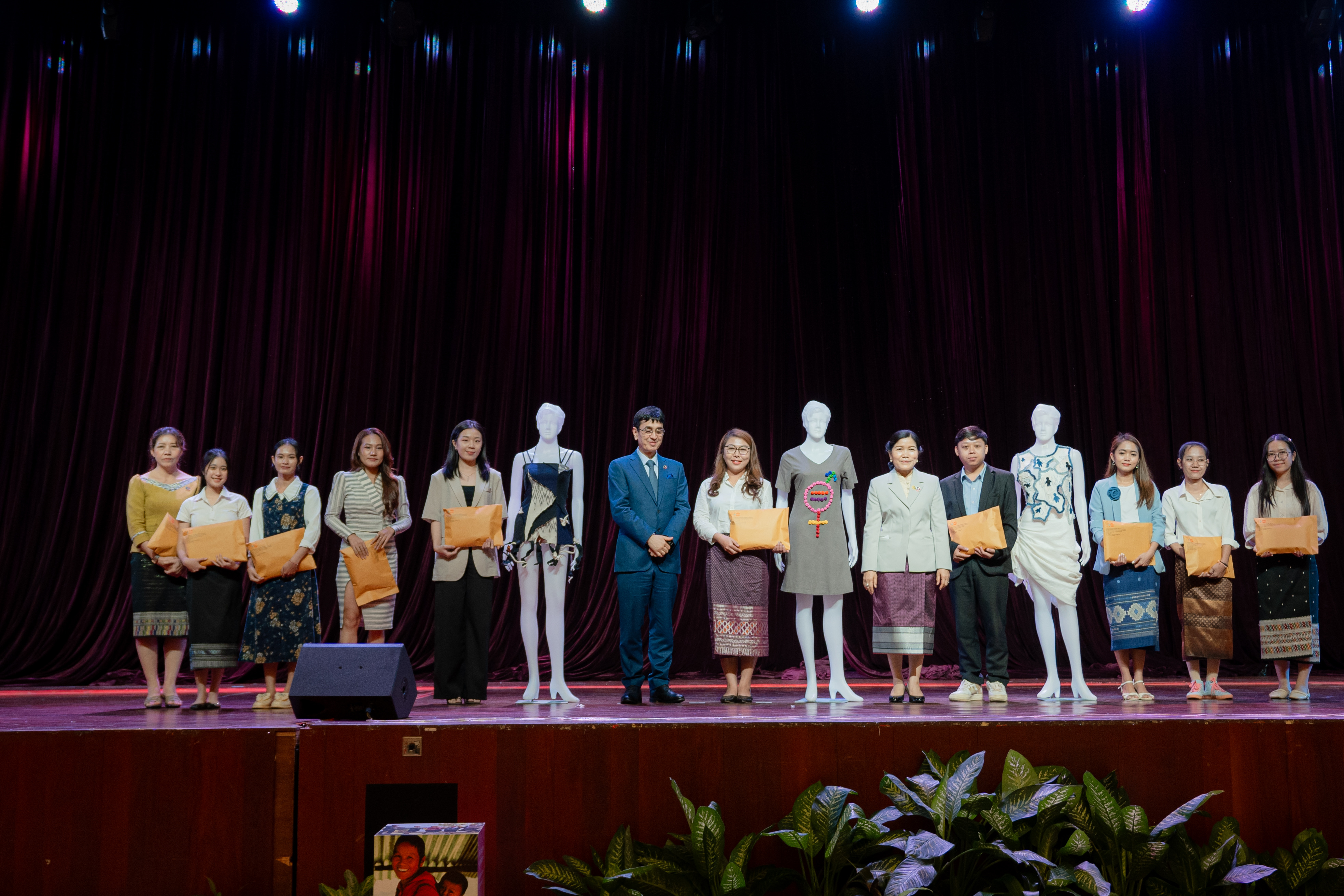
The proceedings illustrated how gender equality is a pivotal development investment, yielding substantial social and economic benefits, and how significant returns can be achieved through rights-based family planning, reducing unintended pregnancies, improving educational outcomes, increasing lifetime earnings for girls, and enhancing women's workforce participation. It was also noted that one third of the economic growth experienced in Asia during the demographic dividend years has been attributed to improvements in women’s empowerment and their participation in the labour force alongside rapid fertility transition.
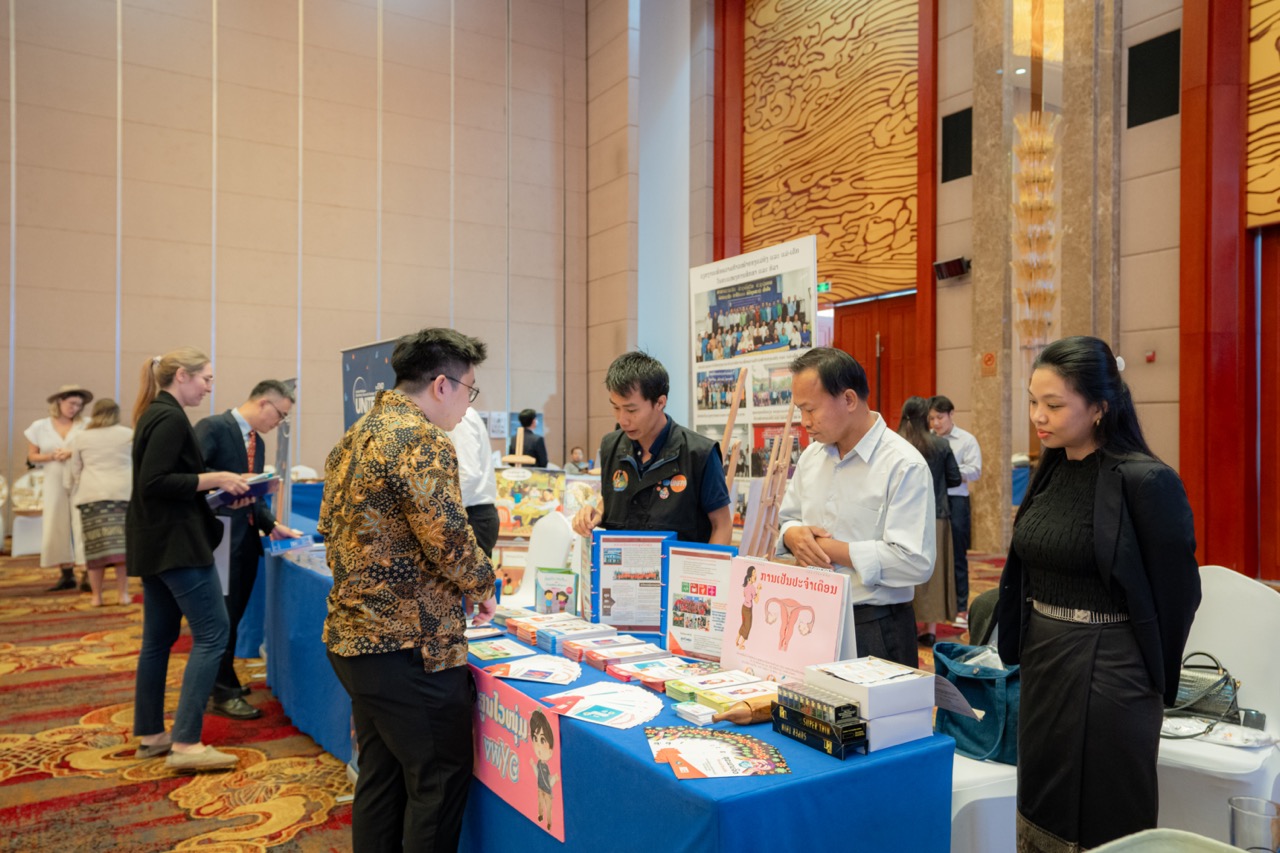
The day’s programme also underscored ongoing challenges exacerbated by disparities among ethnic groups, geographic areas, age, and socio-economic status. Stakeholders emphasized the critical need for continued investment in data to identify and empower marginalized groups.
This year's celebration further emphasized the transformative impact of inclusive data generation and the importance of the upcoming Lao Population and Housing Census to generate robust data on socio-economic characteristics to inform planning processes aimed at achieving the three zeros of:
- ending preventable maternal deaths.
- ending the unmet need for family planning, and
- ending gender-based violence and all harmful practices, including child marriage.
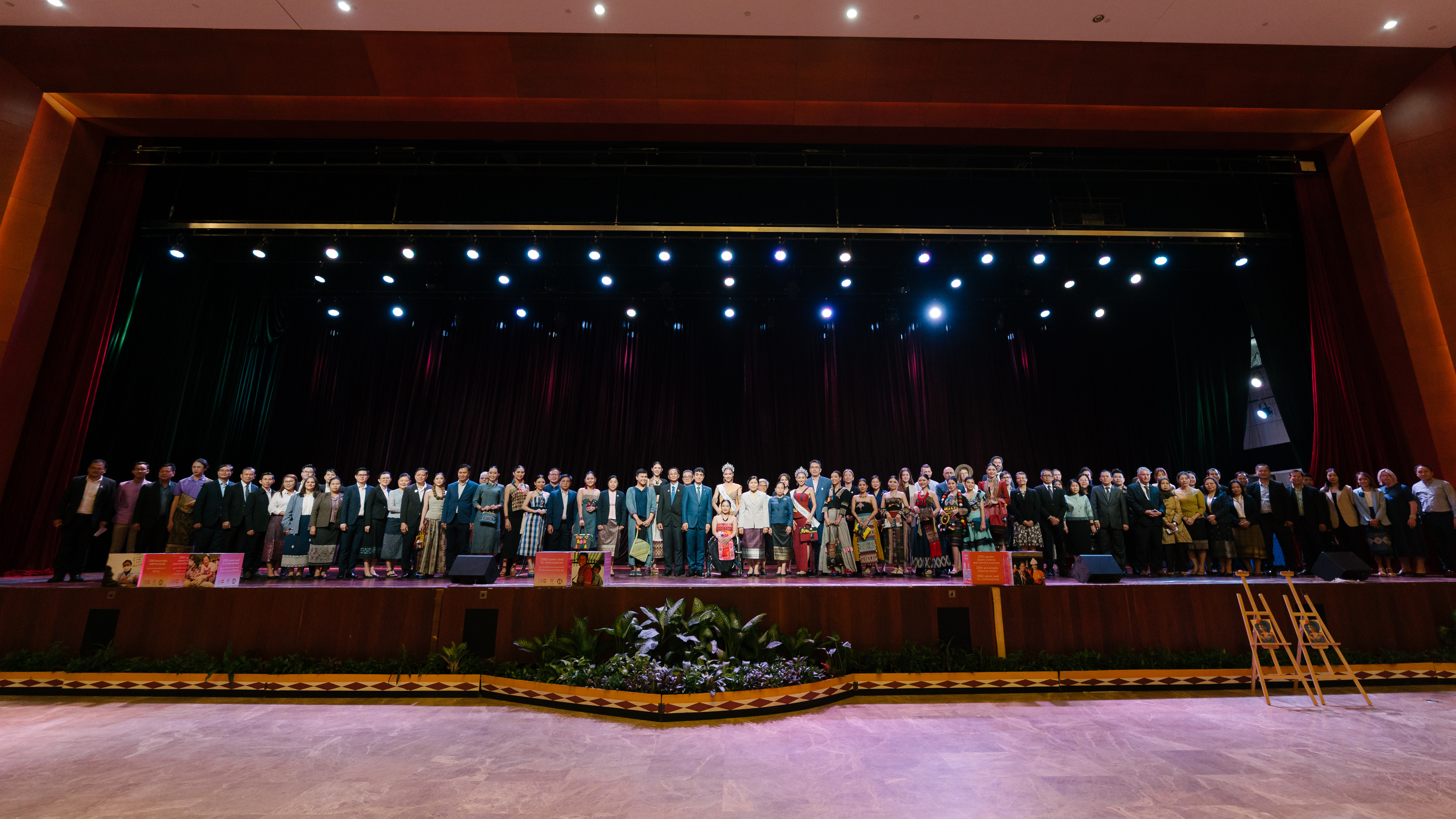
___
For media inquiries, please contact:
Fatima-Zahra Benyahia Sablonnière, Partnership-Innovation-Communication-Documentation
Email: fbenyahia@unfpa.org | Phone: 020 916 821 44
___
About UNFPA:
The United Nations Population Fund (UNFPA) is the United Nations sexual and reproductive health agency. In Lao PDR, UNFPA works to ensure that every pregnancy is wanted, every childbirth is safe, and every young person's potential is fulfilled.
For more information please visit https://lao.unfpa.org/en or contact: laos.office@unfpa.org

